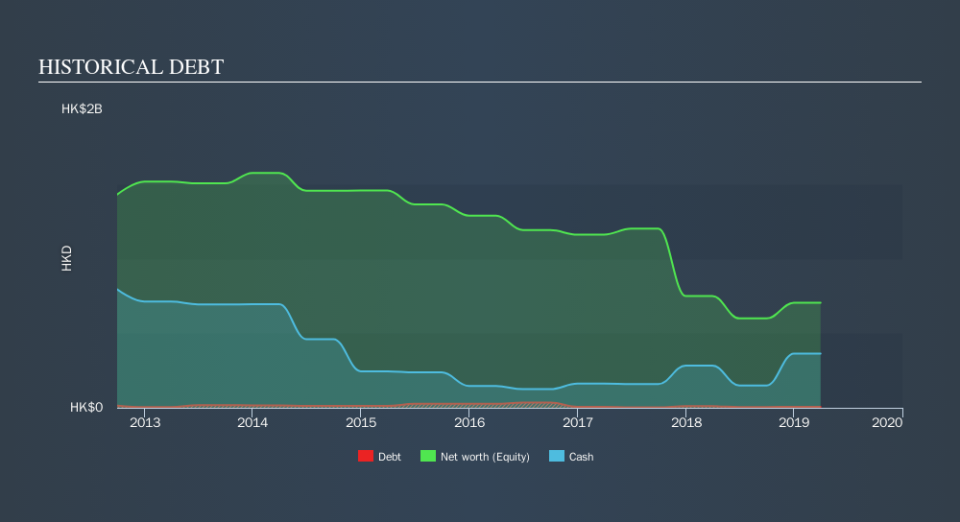Is YGM Trading (HKG:375) Using Debt In A Risky Way?

The external fund manager backed by Berkshire Hathaway's Charlie Munger, Li Lu, makes no bones about it when he says 'The biggest investment risk is not the volatility of prices, but whether you will suffer a permanent loss of capital.' It's only natural to consider a company's balance sheet when you examine how risky it is, since debt is often involved when a business collapses. We can see that YGM Trading Limited (HKG:375) does use debt in its business. But the more important question is: how much risk is that debt creating?
What Risk Does Debt Bring?
Debt assists a business until the business has trouble paying it off, either with new capital or with free cash flow. In the worst case scenario, a company can go bankrupt if it cannot pay its creditors. However, a more frequent (but still costly) occurrence is where a company must issue shares at bargain-basement prices, permanently diluting shareholders, just to shore up its balance sheet. Of course, the upside of debt is that it often represents cheap capital, especially when it replaces dilution in a company with the ability to reinvest at high rates of return. The first thing to do when considering how much debt a business uses is to look at its cash and debt together.
Check out our latest analysis for YGM Trading
How Much Debt Does YGM Trading Carry?
The image below, which you can click on for greater detail, shows that YGM Trading had debt of HK$6.78m at the end of March 2019, a reduction from HK$10.5m over a year. However, its balance sheet shows it holds HK$364.1m in cash, so it actually has HK$357.3m net cash.
How Healthy Is YGM Trading's Balance Sheet?
Zooming in on the latest balance sheet data, we can see that YGM Trading had liabilities of HK$213.9m due within 12 months and liabilities of HK$1.51m due beyond that. On the other hand, it had cash of HK$364.1m and HK$25.9m worth of receivables due within a year. So it can boast HK$174.6m more liquid assets than total liabilities.
It's good to see that YGM Trading has plenty of liquidity on its balance sheet, suggesting conservative management of liabilities. Given it has easily adequate short term liquidity, we don't think it will have any issues with its lenders. Succinctly put, YGM Trading boasts net cash, so it's fair to say it does not have a heavy debt load! The balance sheet is clearly the area to focus on when you are analysing debt. But you can't view debt in total isolation; since YGM Trading will need earnings to service that debt. So when considering debt, it's definitely worth looking at the earnings trend. Click here for an interactive snapshot.
In the last year YGM Trading actually shrunk its revenue by 37%, to HK$361m. That makes us nervous, to say the least.
So How Risky Is YGM Trading?
Although YGM Trading had negative earnings before interest and tax (EBIT) over the last twelve months, it made a statutory profit of HK$90m. So taking that on face value, and considering the cash, we don't think its very risky in the near term. With mediocre revenue growth in the last year, we're don't find the investment opportunity particularly compelling. For riskier companies like YGM Trading I always like to keep an eye on the long term profit and revenue trends. Fortunately, you can click to see our interactive graph of its profit, revenue, and operating cashflow.
If, after all that, you're more interested in a fast growing company with a rock-solid balance sheet, then check out our list of net cash growth stocks without delay.
We aim to bring you long-term focused research analysis driven by fundamental data. Note that our analysis may not factor in the latest price-sensitive company announcements or qualitative material.
If you spot an error that warrants correction, please contact the editor at editorial-team@simplywallst.com. This article by Simply Wall St is general in nature. It does not constitute a recommendation to buy or sell any stock, and does not take account of your objectives, or your financial situation. Simply Wall St has no position in the stocks mentioned. Thank you for reading.


